


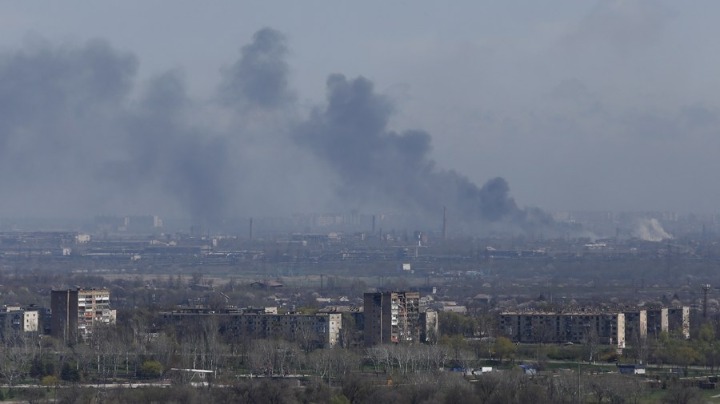
Russia's President Vladimir Putin says his country will continue its yearlong "special military operation" in Ukraine, and he accused the US-led NATO alliance of fanning the flames.
Russia-Ukraine conflict would have cost world economy $1.6 trillion in 2022, according to a study published by the German Economic Institute.
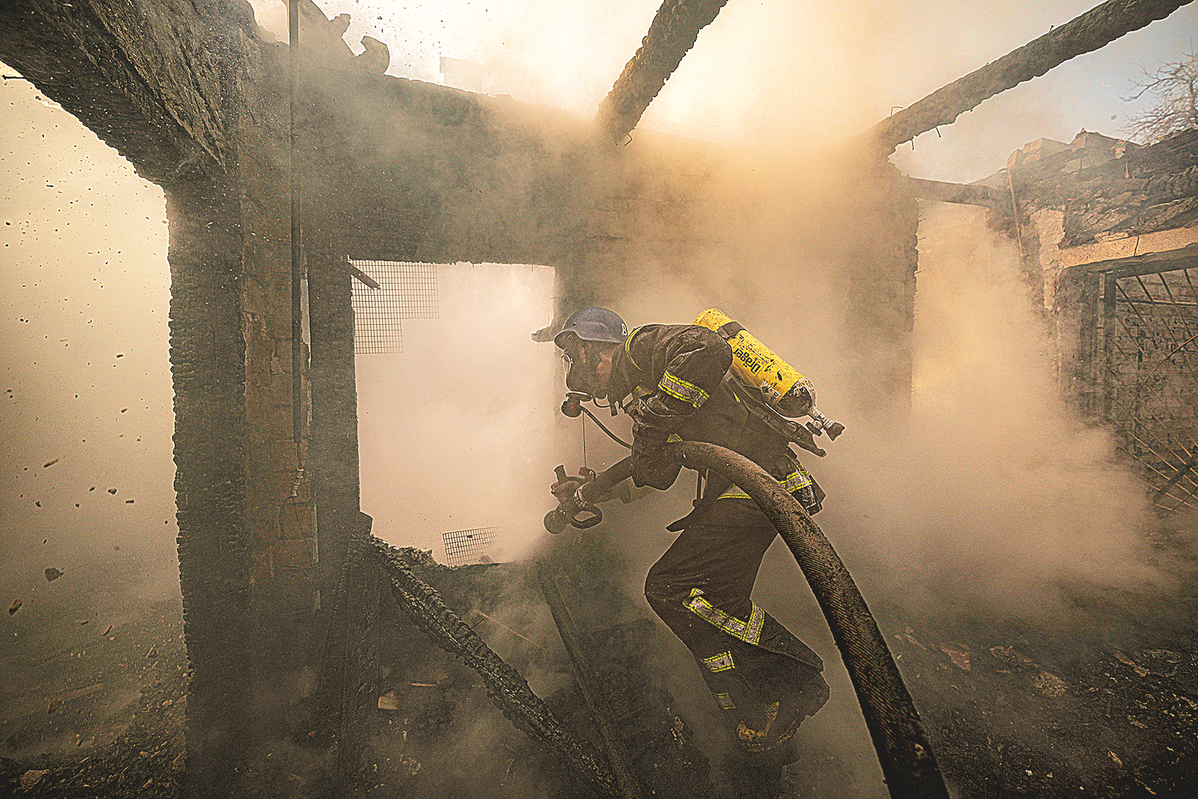
Russia has announced it will require "unfriendly countries" to start paying for gas supplies in rubles, increasing pressure on the European Union ahead of a slew of emergency summits on Thursday involving US President Joe Biden and Western leaders.
"I have decided to implement a set of measures to transfer payments for our gas supplies to unfriendly countries into Russian rubles," Russian President Vladimir Putin said, ordering the changes to be implemented within a week.
"I would like to stress separately that Russia will definitely continue supplying natural gas in accordance with volumes and prices, pricing principles set in earlier concluded contracts," Putin announced at a Cabinet meeting on Wednesday.
The measures are part of Russia's response to unprecedented sanctions leveled by Western countries on Moscow in response to its "special military operation" in Ukraine. Russia deems all countries that have hit it with sanctions as "unfriendly".
Europe imports around 40 percent of its natural gas from Russia, with contracts typically priced in euros. Russia's gas exports to "unfriendly" countries came in at around $50 billion in 2021, according to an estimate by Loko Invest.
German Economy Minister Robert Habeck, whose country imported 55 percent of its natural gas from Russia before the conflict, said Putin's demand was a breach of contract and that Berlin will discuss with European partners "how we would react to that".
Austria's OMV energy company said on Wednesday that it would still keep paying for Russian gas in euros despite the announcement. "We don't have any other basis for the contract. I wouldn't be able to do otherwise," OMV CEO Alfred Stern told Austrian television.
The announcement by Putin came as Biden and Western leaders were finalizing a package of new measures to pressure Russia, help Ukraine and demonstrate Western unity at a string of emergency summits on Thursday.
Biden will meet with NATO, the Group of Seven and the European Council during his 2-day visit in Brussels.
NATO Secretary-General Jens Stoltenberg stressed on Wednesday that the bloc won't send troops to Ukraine after Poland proposed the alliance send peacekeeping troops. "NATO is not part of the conflict. It provides support to Ukraine but isn't part of the conflict," he said.
Biden and European leaders are also expected to announce a major initiative to direct shipments of liquefied natural gas to Europe this week, part of a broader effort to help reduce the continent's dependence on Russian energy, according to three US officials familiar with the plan.
The Russian stock market resumed limited trading on Thursday under heavy restrictions, almost one month after prices plunged and the market was shut down after the start of Moscow's "special operation" in Ukraine. Trading of a limited number of stocks including energy giants Gazprom and Rosneft took place under curbs that are meant to prevent a repeat of the massive sell-off that took place on Feb 24 in anticipation of Western economic sanctions.
The reopening will be a crucial test for Russia's economy amid what Central Bank chief Elvira Nabiullina has called a "period of large-scale structural transformation".
Meanwhile, the Ukrainian Navy said on Wednesday that it had destroyed a Russian naval transport vessel docked in the Azov Sea near the besieged port city of Mariupol.
There was no immediate response from Russia's Defense Ministry to the claim, although videos on social media appeared to show a very large fire with secondary explosions in the port.
Agencies contributed to this story.
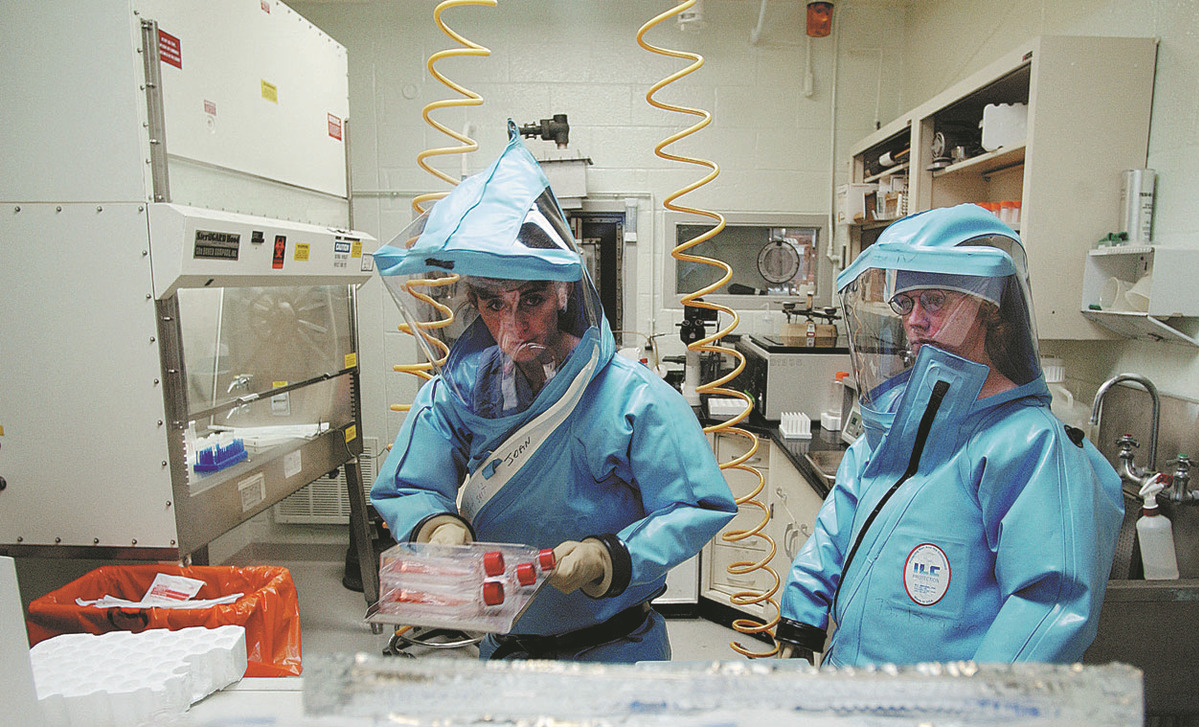
Time will tell that China stays on the right side of history and any ungrounded accusation and doubt of China will collapse, Foreign Ministry spokesman Wang Wenbin said on Thursday.
He made the remarks while dismissing the claim by NATO's Secretary General Jens Stoltenberg that China has spread "lies and disinformation" over the Ukraine crisis.
Stoltenberg made the accusation on Wednesday, according to The Associated Press.
"Such an accusation is disinformation in itself," Wang told a daily news conference.
China has been working actively to achieve an early cease-fire and avoid a humanitarian crisis in an objective and fair manner, Wang said. "We have always believed that Ukraine should be a bridge for communication between the East and the West, instead of a front line of games between major powers," the spokesman said.
European countries should uphold strategic independence and work with Russia and Ukraine to build a balanced, effective and sustainable security framework for Europe through talks, Wang said, adding that the United States and NATO should also talk with Russia to solve the crux of the crisis.
"What is needed to resolve the crisis is a cool head and a rational mind, not adding fuel to the fire," Wang said.
"What is needed to restore peace is dialogue and communication, not pressure or coercion. What is needed to achieve lasting peace and stability is efforts to accommodate the legitimate security concerns of all parties, not moves to seek bloc confrontation and absolute security."
China's position is in line with the wishes of most countries, he said.
Bio-labs in Ukraine
In another development, Wang said the US should make serious clarification about bio-labs in Ukraine and "open up its door for international scrutiny", after US State Department spokesman Ned Price said on Wednesday that China is spreading "disinformation... about... biological weapons programs".
The international community is seriously concerned about the labs' purpose and whether the US has conducted in the Ukraine labs and labs in other countries hazardous research that is prohibited in the US, Wang said.
The US, which has responded "with many loopholes" to the international community's doubt over the labs, should not dodge the issue with silence or by simply claiming the doubt is "disinformation".
It should make convincing explanations over its biological military activities in Ukraine and the world as soon as possible, and stop being the only country blocking the establishment of a verification mechanism under the Biological Weapons Convention, Wang added.
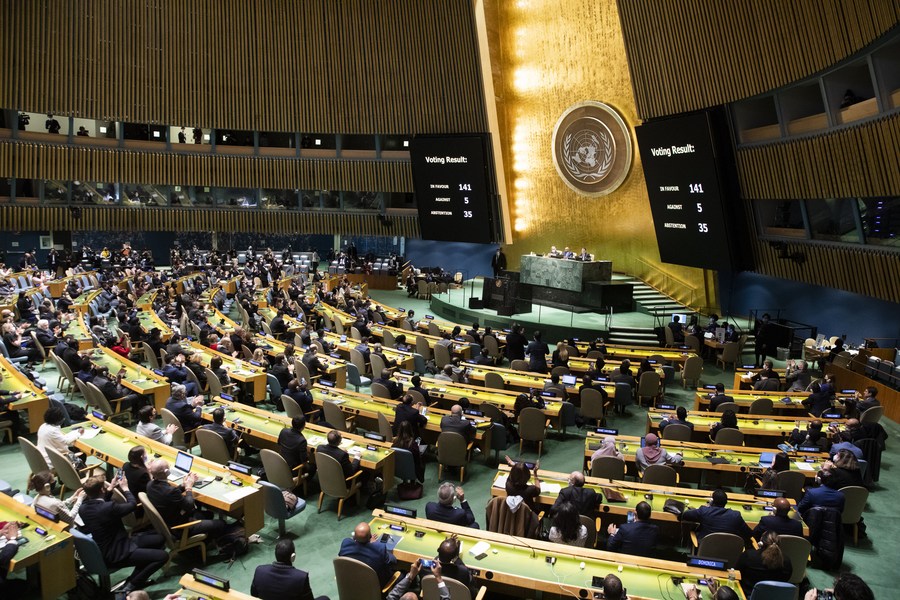
The United Nations General Assembly on Thursday adopted a resolution on the humanitarian situation in Ukraine.
The resolution, originally prepared by France and Mexico and put forward by Ukraine and others, received 140 votes in favor and 5 votes against. There were 38 abstentions, including China.
The text encourages the continued negotiations between all parties and again urges the immediate peaceful resolution of the conflict between the Russian Federation and Ukraine "through political dialogue, negotiations, mediation and other peaceful means in accordance with international law".
Zhang Jun, China's permanent representative to the UN, reiterated China's position on the humanitarian situation in Ukraine, and called for any initiatives and measures that can help alleviate and resolve the humanitarian crisis in Ukraine.
"The development of the situation in Ukraine to the present stage has triggered broad international concerns, and it is also something China does not want to see," Zhang said during the meeting.
"It is heart-wrenching to see the continued deterioration of the humanitarian situation in Ukraine, as well as the civilian casualties and massive displacement of people caused by the conflict," he said.
The envoy pointed out that the top priority now is for the parties concerned to maintain maximum restraints, avoid more civilian casualties and reach a negotiated cease-fire as soon as possible, especially to prevent a larger scale humanitarian crisis.
"China attaches great importance to the humanitarian issue of Ukraine. We welcome any initiative and measures that can help alleviate and resolve the humanitarian crisis in Ukraine," said Zhang.
China's fundamental starting point is to promote the international community and the UN to attach great importance to the humanitarian situation in Ukraine and call on the parties concerned to strengthen coordination on the humanitarian issue, effectively protect the safety of civilians, especially vulnerable groups such as women and children, and facilitate the personnel evacuation and humanitarian relief operations, he said.
Zhang stressed that China recognizes the purpose of the draft resolution put forward by France, Mexico and others and appreciates the efforts made by them and relevant countries in promoting consensus.
"At the same time, it is clear that some elements of the draft resolution go beyond the humanitarian context. Some issues are so complex that (they) can only be solved though political negotiations between the parties concerned," he said.
"Today's world is facing multiple severe challenges, and the spillover effects of the Ukraine crisis have further brought about global impacts," said Zhang. "The world is yet to emerge from the shadow of the COVID-19 pandemic, and the ever-escalating implementation of sweeping, non-discriminatory sanctions have caused and will further cause a huge impact on global economy, trade, finance, energy, food and industrial and supply chains, seriously affecting the normal lives of people in all countries, and making the already difficult world economy even worse.
"Developing countries, which make up the majority of the world, are not parties to this conflict. They should not be drawn into the issue and forced to suffer the consequences of geopolitical conflicts and major-power rivalry," the ambassador said.
In addressing international and regional hot spot issues, Zhang said "there cannot be only two options, namely the use of force and sanctions. In the face of complex situations, all countries have the right to independently and autonomously decide their own foreign policies."
He stressed that relevant countries should not adopt a simplistic approach of either friend or foe, black or white, and should not force any country to pick a side.
"Respect for the sovereignty, independence and territorial integrity of all countries is a basic norm governing international relations that applies to all countries and all situations," he said. "There should be no exceptions, still less, double standards."
Dialogue and negotiation are the only way out of the Ukraine crisis, said Zhang. "China strongly calls on the international community to remain rational, strengthen unity and make unremitting efforts for cease-fire and peace. China will continue its constructive role in facilitating peace talks," he said.
Editor's Note: China Daily presents a series of analyses to help readers around the world better understand the how and why behind China's views and decisions on the Ukraine situation. This is the first installment of the series.
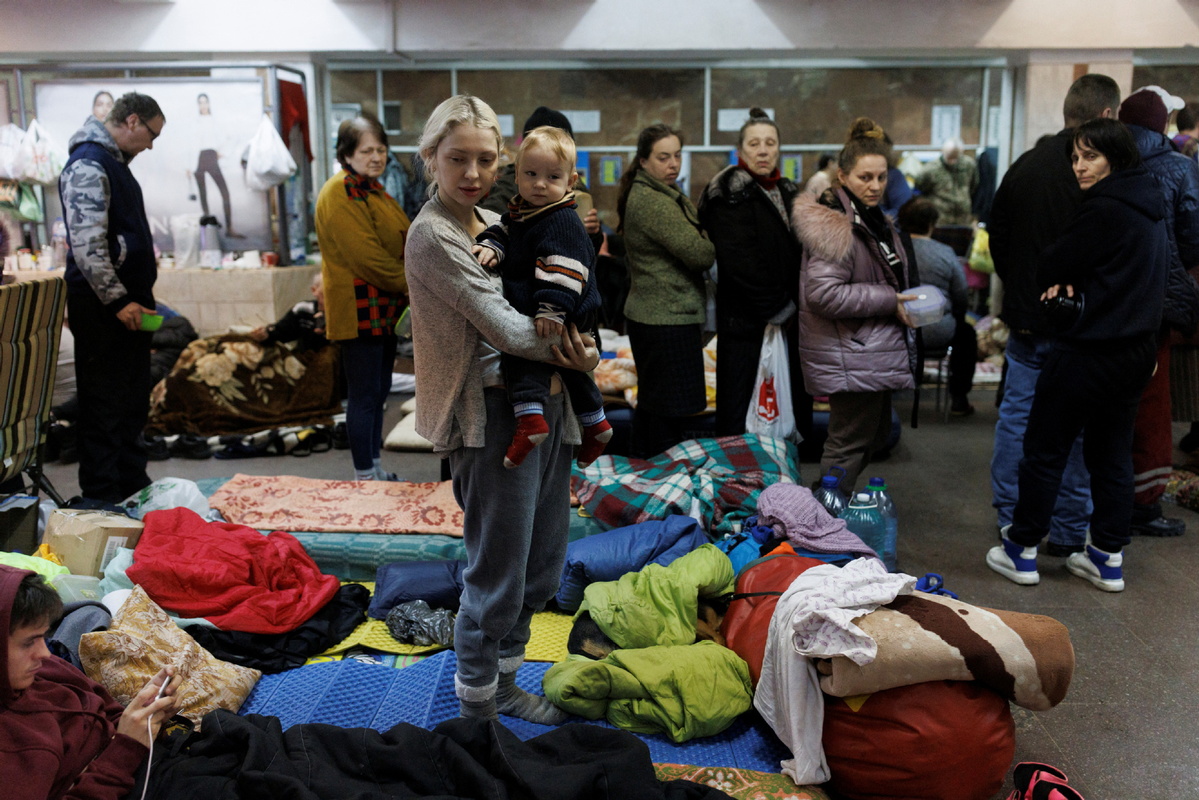
Xi: Expanding penalties would put global economy, order, public well-being at risk
One month after the Ukraine crisis broke out, China and an increasing number of like-minded nations, particularly developing countries, have voiced objection to unilateral sanctions by United States-led Western countries.
The reasons are clear: Such sanctions will only make the crisis last even longer, break international rules and order, worsen people's livelihoods and aggravate the humanitarian tragedy, officials and analysts said.
One of the clear messages against these sanctions is from President Xi Jinping. He told US President Joe Biden on March 18 that sweeping and indiscriminate sanctions would only make the people suffer.
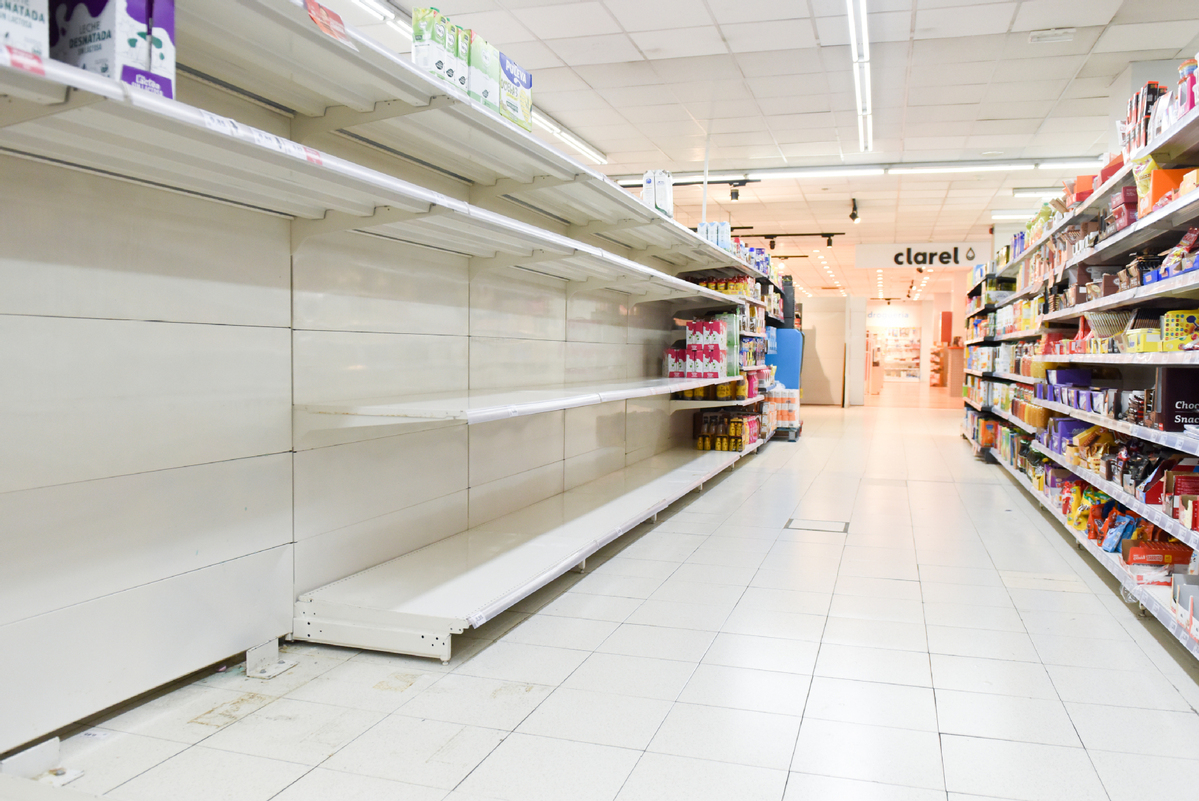
If further escalated, the sanctions could trigger serious crises in global economy and trade, finance, energy, food, and industrial and supply chains, crippling the already languishing world economy and causing irrevocable losses, Xi said.
"China has all along opposed unilateral sanctions that have neither basis in international law nor mandate of the (United Nations) Security Council," and "imposing sanctions is like 'putting out fire with firewood' and will only make things worse", Vice-Foreign Minister Le Yucheng said at a forum on Saturday.
Zhu Jiejin, a professor of global governance studies at Fudan University's School of International Relations and Public Affairs, said, "The recently imposed sanctions are shaking the existing international financial order while dealing heavy blows to the already shaky recovery of the global economy amid the COVID-19 pandemic."
The decision to partly ban Russia from SWIFT, the global messaging system for financial transactions, is "actually turning globalization into a 'weapon' and dampening the world's faith in globalization's future", Zhu said.
"Also, maximizing sanctions to the extreme will only lead to more extreme consequences," he said.
A joint statement issued on Sunday by the foreign ministries of China and Algeria responded to the Ukraine crisis and said both countries oppose indiscriminate application of unilateral sanctions without the support of international law.
Both countries urged avoiding the sabotaging of international rules and harming the livelihoods of people of various countries.
None of the other BRICS members-Brazil, India, China and South Africa-h(huán)as joined in the sanctions against fellow member Russia. G20 members such as Mexico also declined to do so.
Walter Russell Mead, a distinguished fellow at the US Hudson Institute think tank, said China's basic approach-not endorsing Moscow's moves and resisting Western efforts to punish Russia-"has garnered global support".
In an article published in The Wall Street Journal on Monday, Mead said, "The West has never been more closely aligned," and "It has also rarely been more alone".
The latest episode in the punitive pushes from the West is that the European Union is mulling its fifth package of sanctions against Russia.
The ongoing drive for more sanctions is unlikely to achieve what the Western countries want, but could possibly worsen global inflation, said Ding Yifan, a research fellow at the Development Research Center of the State Council's Institute of World Development.
The Ukraine crisis is developing in a way that goes beyond itself with spillovers affecting the whole world, and "the momentum of world economic recovery should not be disrupted", said Foreign Ministry spokesman Wang Wenbin on Monday.
Wang spoke of the widely shared view that when addressing regional and international hot-spot issues, war and sanctions are not the only options, and dialogue and negotiation are the fundamental way out. "The people should by no means be made to bear the brunt of geopolitical conflicts and major-country rivalry," he said.
"Unlike the sanctions leveled in recent years, this time more countries, international companies, civic groups and even international organizations joined the ranks of those imposing sanctions. By taking a side, they attempt to avoid also being sanctioned," said Li Wei, a professor at the School of International Studies of Renmin University of China.
While China is also falling prey to the sanctions on Russia in areas such as regular bilateral trade, Washington has threatened potential "consequences" over China's future role in the sanctions, experts noted.
When asked on Wednesday about China's role in sanctions against Russia, US National Security Advisor Jake Sullivan warned that the G7 sanctions enforcement initiative "will apply to every significant economy and the decisions that any of those economies take to try in an intentional and active way to undermine or weaken the sanctions".
Chinese Ambassador to the US Qin Gang said earlier this month that "threats against Chinese entities and businesses, as uttered by some US officials, are unacceptable".
"Neither war nor sanctions can deliver peace. Wielding the baton of sanctions at Chinese companies while seeking China's support and cooperation simply won't work," Qin wrote in a signed opinion piece in The Washington Post on March 15.
Wang Peng, a research fellow at Huazhong University of Science and Technology's Institute of State Governance, said, "The US prefers abusing sanctioning when dealing with other countries, but China will not buy it."
Washington has not generally loosened restrictions it has placed on China since 2018, and its policy of containing China has seen no major changes except going deeper into topics such as Asia-Pacific security and the Taiwan question, Wang noted.
"It won't be a problem if Washington would sit at the table with China to discuss a topic based on mutual respect and an equal footing. And China will not be intimidated by any threats or menaces that expose the US' hypocrisy and lack of confidence," Wang said.
Over the past few years, China has also been a major victim of Washington's unilateral sanctions, and Chinese enterprises, particularly in the high-tech industry, have suffered major losses.
"The facts show that imposing such sanctions will do harm to both sides, and the US has not obtained any major benefit from them," said Tao Wenzhao, a researcher at the Chinese Academy of Social Sciences' Institute of American Studies.
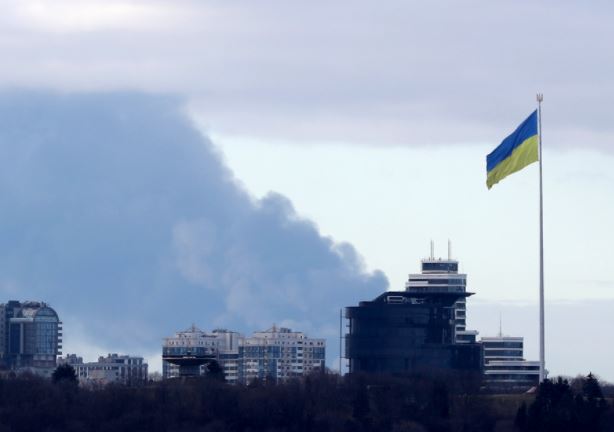
Ukraine set up seven humanitarian corridors on Thursday to evacuate civilians, the government-run Ukrinform news agency reported, citing Ukrainian Deputy Prime Minister Iryna Vereshchuk.
At a media briefing, Vereshchuk said 45 buses are set to evacuate civilians from the besieged city of Mariupol in Donetsk, adding that the evacuation will continue in towns and villages in the southern Zaporizhzhia region and the central Kiev region.
On Wednesday, Ukraine established nine humanitarian corridors to evacuate civilians from the above-mentioned two regions.
MOSCOW - Russian President Vladimir Putin had a telephone conversation with German Chancellor Olaf Scholz on Wednesday to discuss the Moscow-Kyiv peace talks.
The leaders focused their attention on the problems of the ongoing negotiation process, the Kremlin said in a brief statement.
Putin outlined a number of considerations in the context of Russia's principled positions during the talks, it added.
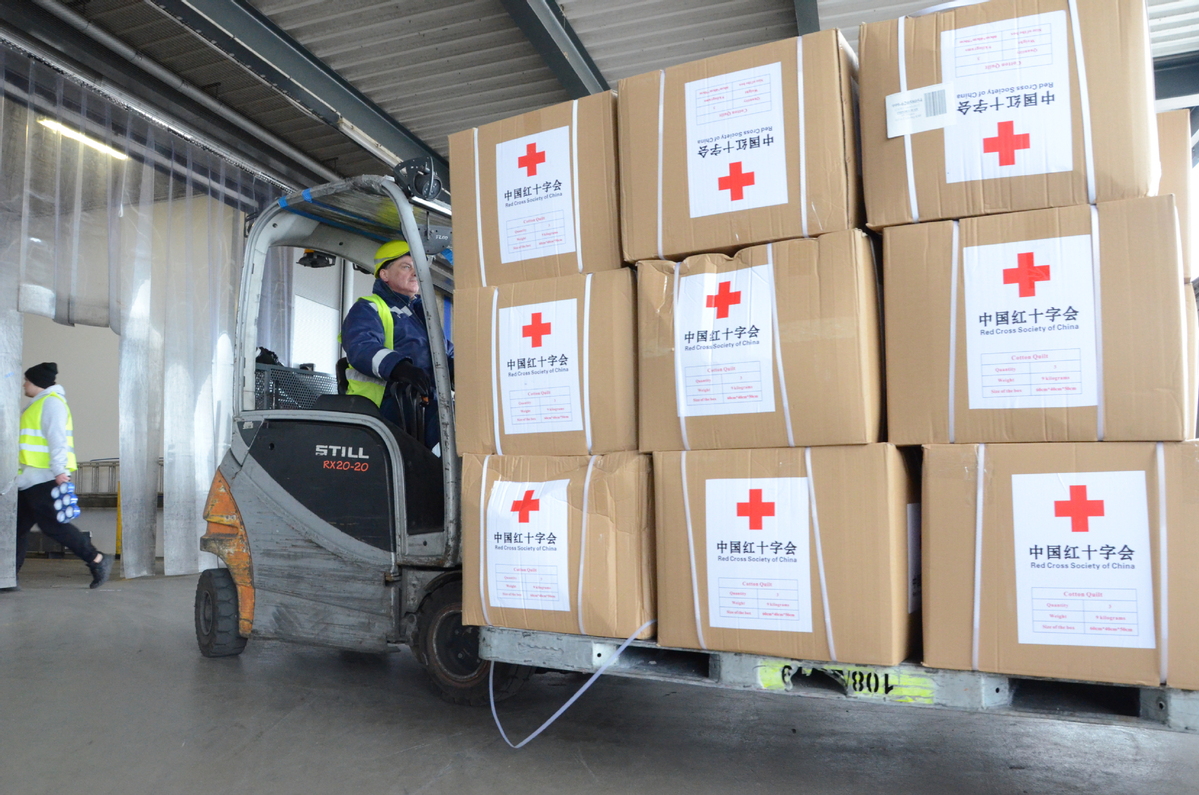
The Russia-Ukraine conflict witnesses these phenomena: China is sending humanitarian aid to Ukrainians while the United States is delivering weaponry to Kyiv, and China is promoting dialogue to end the crisis and ease its global impact while the US is keen to escalate sanctions that could disrupt global economic recovery.
Throughout the Russia-Ukraine conflict, China has maintained a state of neutrality, citing its close friendship, trade and economic ties with both countries.
During a video call with US President Joe Biden last week, President Xi Jinping said the top priorities were to continue dialogue and negotiations, avoid civilian casualties, prevent a humanitarian crisis, cease fighting and end the war as soon as possible.
Xi had urged the US to hold talks between the US, NATO and Russia on what he described as the "crux" of the Ukraine conflict: the security concerns of both Moscow and Kyiv.
Washington seems obsessed with sanctions and warnings that China would "face the consequences". The US State Department has threatened even more sanctions if China provided support to Russia.
No doubt what Ukrainians need most are daily living necessities, a cease-fire and an end to military operations. As shelling continues in key places in Ukraine, daily necessities have become scarce, and the injured need medical care.
China has insisted on and worked for diplomatic solutions to the crisis, apart from offering humanitarian aid.
Shortly after President Xi discussed options with his French and German counterparts, the first shipments of aid to Ukraine's 44 million people had been sent. The shipments, consisting of milk powder for children, blankets and quilts, arrived via Bucharest on March 12.Subsequent aid convoys brought such items as towels, buckets and torches to Lviv and Chernivtsi in western Ukraine.
In addition, at the request of Ukraine, the Red Cross Society of China is providing more humanitarian aid, including food and daily necessities.
In the meantime, the US has managed to sell and fly into Ukraine a large range of basic and sophisticated weapons, worth hundreds of millions of dollars.
The Western media disappoint readers with disinformation or coldness about the voices and actions of non-NATO countries during the crisis, railing against nations that are not ready to toe the US line.
China has consistently maintained its anti-war policy. It is not a warmongering and war-profiteering country, in stark contrast to a superpower that highlights its military muscle across the world, especially in squeezing the breathing space for Russia's security.
China's partnership with Russia and Ukraine has been long-standing and built on trust, and it will continue.
China has been Russia's largest trade partner for 12 consecutive years, according to China's Commerce Ministry. In addition, it was the largest importer from Ukraine in 2021, with goods worth $8 billion-up 12.7 percent year-on-year.
Ukraine imported Chinese goods worth $10.97 billion last year, an increase of 31.9 percent year-on-year, according to data from the State Statistics Service of Ukraine.
However biased the Western media have become against China, the Ukrainians will suffer more with the influx of US weaponry, but they will be better off with assistance and solutions from China and others. Whatever the White House claims, time will prove to the rest of the world what kind of solutions work for the better coexistence of Ukraine, Russia and the rest of Europe.
The author is a former chief information officer for the Hong Kong Special Administrative Region government and a media consultant. The views do not necessarily reflect those of China Daily.
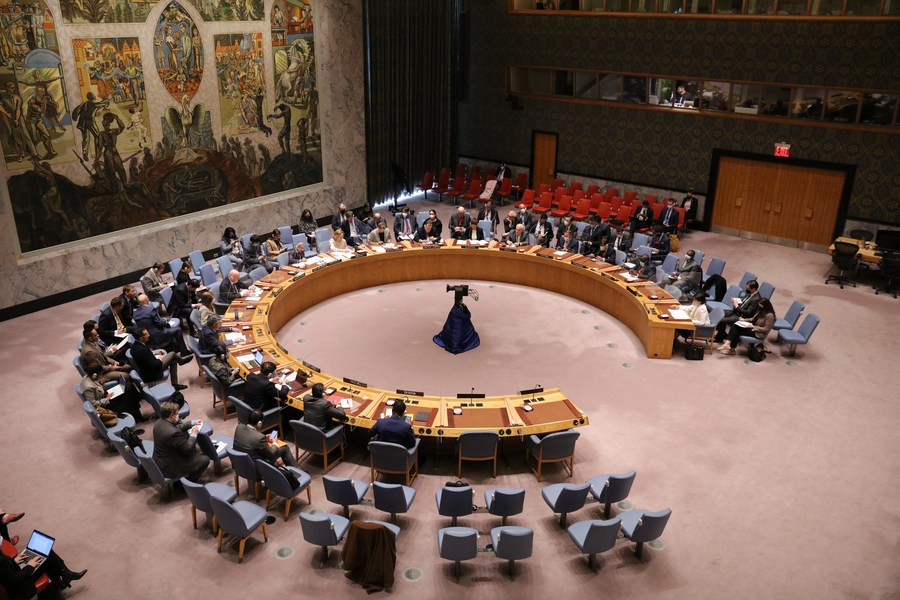
A draft resolution on the humanitarian situation in Ukraine failed to pass the United Nations Security Council on Wednesday.
Two council members, China and Russia, voted in favor of the resolution, while 13 others abstained. The draft resolution, proposed by Russia, needed at least nine votes in favor and no vetoes by the five permanent Security Council members: Russia, China, Britain, France or the United States.
Zhang Jun, China's permanent representative to the UN, reiterated China's position on the humanitarian situation in Ukraine, and called on the Security Council to play its due role on the issue.
"We advocate that the Security Council should fulfill its primary responsibility for the maintenance of international peace and security and play its due role in the humanitarian issue of Ukraine," Zhang said after the vote. "Like many member states, China has always called for avoiding civilian casualties to the maximum extent and making every effort to ensure basic humanitarian needs."
Zhang reiterated that China has put forward a six-point initiative on the humanitarian situation in Ukraine and has provided several consignments of humanitarian relief supplies to the Ukrainian Red Cross Society.
"We welcome any initiative from others that can help alleviate and resolve the humanitarian crisis in Ukraine," he said.
The ambassador mentioned that over the past few weeks, the Security Council has had repeated consultations on the draft resolutions proposed by France and Mexico as well as the Russian Federation.
"China has actively participated in the consultations and has always called on all parties to focus on the humanitarian issue, transcend the political differences and do their best to seek consensus, so as to make positive efforts to address the current humanitarian crisis," Zhang said. "It is regrettable that the Security Council was unable to reach the broadest possible agreement in the end.
"It is the shared wish of the international community for an immediate cease-fire, which is also China's strong expectation," he said.
Zhang said while promoting a cease-fire, the Security Council "should also respond to the humanitarian crisis in a positive, pragmatic and constructive manner".
China's vote in favor of the draft resolution was "based on our call for the international community to attach high importance to the humanitarian situation in Ukraine and for the parties concerned to strengthen coordination on humanitarian issues, so as to effectively protect the safety of civilians, especially women, children and other vulnerable groups and to facilitate the personnel evacuation and humanitarian relief operations", Zhang said.
"We welcome the coordinating role of the UN in humanitarian assistance," said the ambassador.
China supports the work of the coordinator for the Ukraine crisis and encourages agencies to take actions to mobilize the international community to provide humanitarian relief to all those in need, without discrimination, and to help resettle refugees and displaced persons in and around Ukraine, Zhang said.
"The principles of humanity, neutrality and impartiality established by UN General Assembly Resolution 46/182 must be strictly observed in humanitarian relief operations," he continued.
Zhang said China adheres to an independent foreign policy and has always determined our position "in a responsible manner based on the merits of the matter itself".
"On Ukraine, China has always insisted that the sovereignty and territorial integrity of all countries should be respected, that the purposes and principles of the UN Charter should be upheld, that the legitimate security concerns of all countries should be taken seriously and that all efforts conducive to the peaceful resolution of the crisis should be supported," he stressed.
The key to the Ukraine crisis right now is for the parties concerned to show political will and find a proper solution through negotiations as soon as possible, Zhang said.
He said that the international community should create space for peace and leave room for a political solution. The top priority now is to call on all parties to exercise maximum restraint, avoid civilian casualties and prevent a larger-scale humanitarian crisis.
Zhang emphasized that the long-term solution lies in abandoning the Cold War mentality, refraining from bloc confrontations and gradually putting in place a balanced, effective and sustainable global and regional security architecture.
"China will continue to promote talks for peace, speak out for peace and do its best for peace," he said.
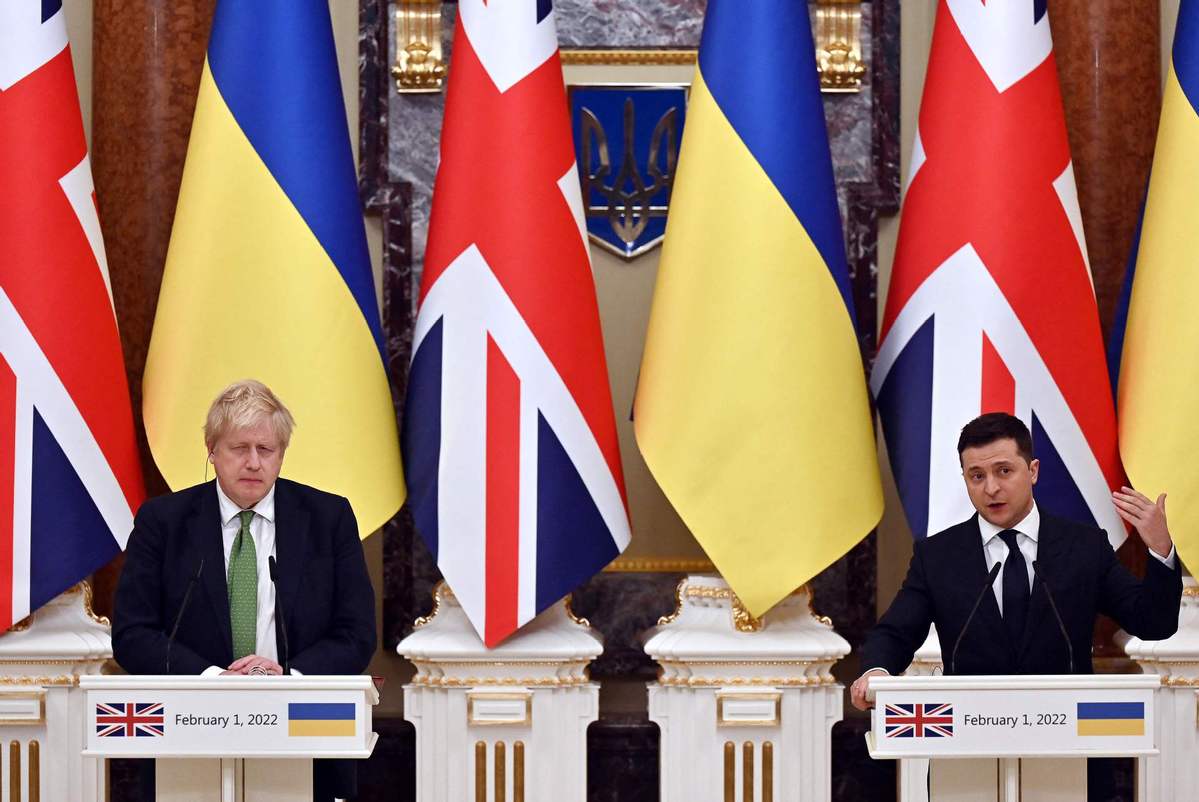
KYIV - Ukrainian President Volodymyr Zelensky said Wednesday that he held a phone conversation with British Prime Minister Boris Johnson to discuss further assistance to Ukraine.
"We have discussed with the British Prime Minister the course of hostilities and defense assistance to Ukraine," Zelensky tweeted.
Zelensky said that he had received assurances of Johnson's support on the eve of Thursday's meetings of the Group of Seven (G7) and the North Atlantic Treaty Organization (NATO).
For his part, Johnson tweeted that he would urge the international community to send more military aid to Ukraine and step up pressure on Russia.
The leaders of G7 and NATO countries will meet for an extraordinary summit in Brussels on Thursday.
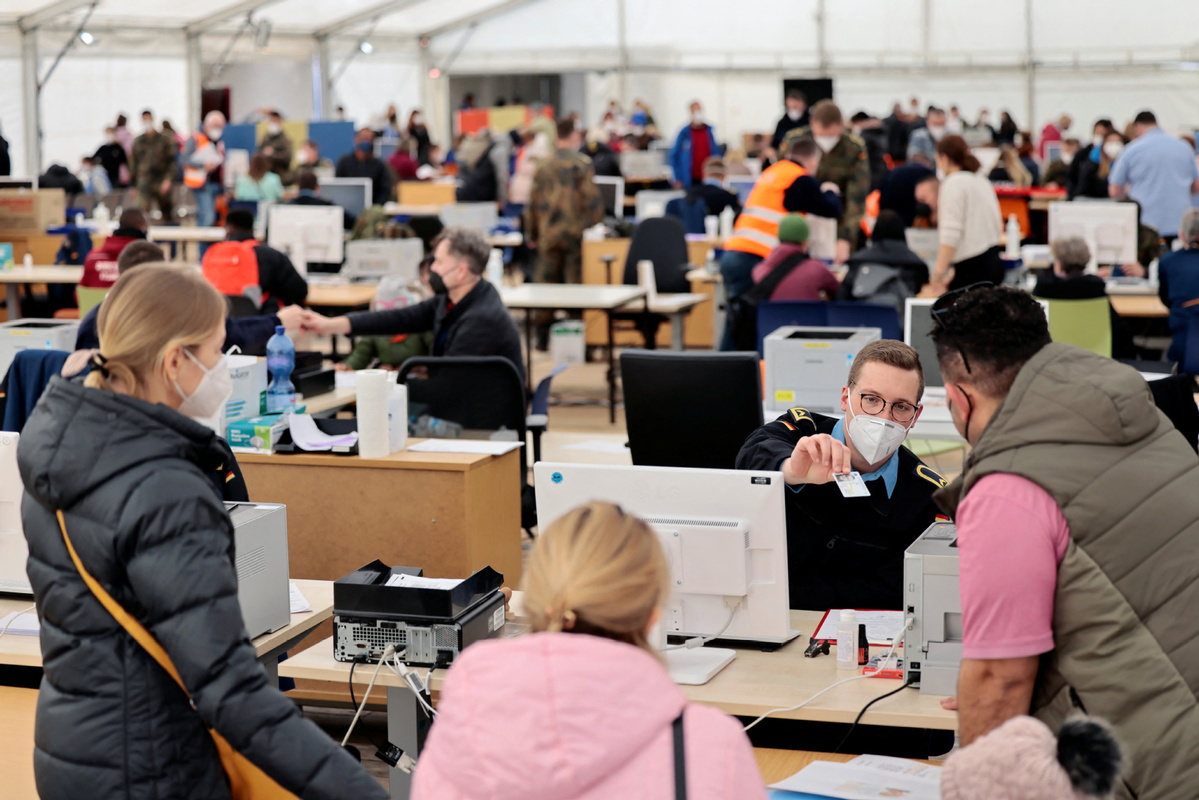
From homes and schooling to jobs, the tasks are daunting for front-line states
WARSAW/BUCHAREST-More than 3.5 million people have fled abroad from the conflict in Ukraine, United Nations data showed on Tuesday, leaving Eastern Europe scrambling to provide them with care, schools and jobs even as daily numbers crossing borders ease.
The millions who have left Ukraine since Russia's special military operation began have made their way on foot, by rail, bus or car to neighboring countries such as Poland and Romania before some travel to make their way further into Europe. Most, however, have not done so.
Ukraine established nine humanitarian corridors enabling civilians to leave the conflict-torn areas and the delivery of aid, the presidential press service reported on Wednesday.
While fewer refugees have crossed borders over the past week, the scale of the task of providing homes to those seeking safety in the European Union is becoming increasingly apparent, above all in Eastern and Central Europe.
Poland, home to the biggest Ukrainian diaspora in the region even before the conflict, has taken in more than 2.1 million people and while some plan to head elsewhere, the influx has left public services struggling to cope.
"The number of children of refugees from Ukraine in Polish schools is increasing by about 10,000 per day," Minister of Education Przemyslaw Czarnek told public radio, saying 85,000 children had enrolled.
Czarnek said authorities were organizing courses in basic Polish for Ukrainian teachers so they could be employed in local schools and teach preparatory classes for Ukrainian children before entering the school system.
With men of conscription age obliged to remain in Ukraine, the exodus has consisted primarily of women and children, many wanting to stay in countries near Ukraine to be closer to loved ones left behind.
In a video posted on Twitter, Mayor Rafal Trzaskowski said 10,000 Ukrainian students had enrolled in Warsaw schools and that a variety of options, including Ukrainian online classes, were needed to avoid a collapse of the city's education system.
"We will act, because we want all those young people who are in Warsaw to be able to study, whichever option they choose," he said.
More than 500,000 people have fled to Romania, the second most after Poland.
Cosmina Simiean Nicolescu, head of Bucharest's social assistance unit, said 60 Ukrainian children had begun classes there this week while many private kindergartens and schools had welcomed refugees.
Breaking point
With refugee numbers nearing breaking point in parts of Eastern Europe, Nicolescu said refugees were returning to Romania in the hope of finding a less difficult situation.
"There are people we have personally put on trains to go to the west who we see back at the train station," she said.
The needs of those fleeing shelling and missile attacks across Ukraine, bearing harrowing memories and the pain of separation from family, stretch well beyond education.
The International Organization for Migration, or IOM, has organized psychological first aid training near the Polish border with Ukraine to help volunteers provide care for the many struggling mentally.
Paloma Cuchi, the World Health Organization's representative in Poland, estimated 30,000 of those reaching the country suffered from severe mental problems while half a million needed mental health support due to the conflict.
"Children have been traveling for days without proper food, without proper water, they are tired, worried," she said.
Barbara Slowinska, a school psychologist, said staff at an elementary school in Gdynia, Poland, were working hard to overcome language difficulties and help the 60 children who had arrived from Ukraine integrate.
"We try to talk a lot with the children, as much as we can," she said, adding that adjusting to new surroundings was the paramount concern.
The head of the UN refugee agency UNHCR, Filippo Grandi, said on Sunday that the war had uprooted 10 million people, most of them still displaced within Ukraine.
Agencies - Xinhua
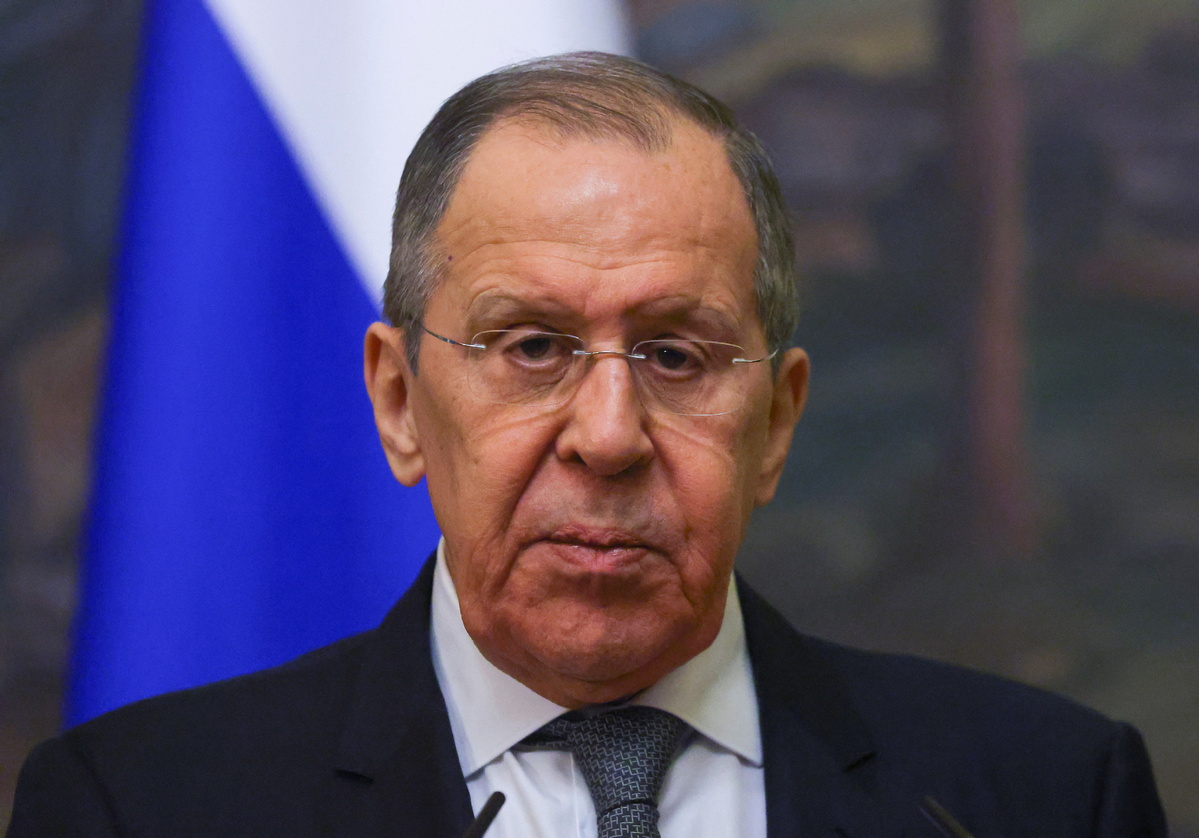
MOSCOW - The United States would not like to see a rapid completion of the Moscow-Kyiv peace talks but hopes that Russia is mired in prolonged hostilities, Russian Foreign Minister Sergei Lavrov said Wednesday.
"It is unprofitable for Americans that this (negotiation) process will be completed quickly. They want to continue to send weapons to Ukraine," Lavrov said during a meeting with students and teachers of Russia's MGIMO University.
"Apparently, they (Americans) want to keep us in a state of hostilities for as long as possible," he said.
Lavrov expressed concern over the delivery of MiG fighter jets and US Stinger man-portable air defense systems to Ukraine, which will pose "an enormous threat, because they will surely spread all over Europe."
The foreign minister stressed that the United States has used sanctions on Russia as an instrument to maintain its dominance in the world.
"These sanctions are aimed at removing Russia as an obstacle on the way to building a unipolar world ... This is not about Ukraine. This is about the world order in which the United States wants to be the sole sovereign," he said.
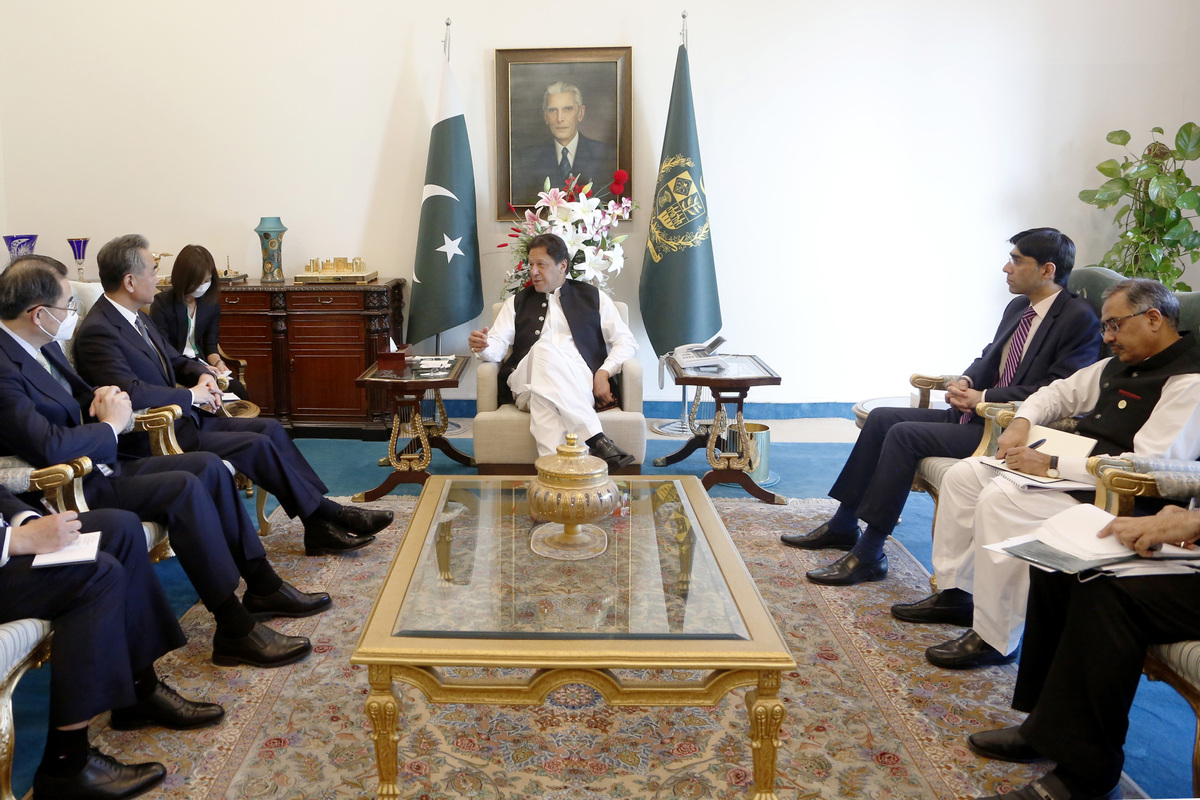
Wang Yi exchanges views on Ukraine with Pakistan, Egypt, Saudi Arabia
China and Pakistan have voiced their joint support for facilitating peace talks between Russia and Ukraine to ease tensions, saying Ukraine should serve as a bridge for communication between the East and West instead of the forefront of major countries competing with each other.
State Councilor and Foreign Minister Wang Yi and Pakistani Prime Minister Imran Khan made the statement on Tuesday when they met in Islamabad on the sidelines of the 48th session of the Council of Foreign Ministers of the Organisation of Islamic Cooperation.
During their meeting, they urged preventing the Ukraine crisis from spreading.
The United States, Europe and NATO should develop dialogue with Russia and adhere to the principle of unified security to build a balanced, effective and sustainable security architecture so Europe can avert war and other regions and countries will not be affected, they said.
Wang and the Pakistani prime minister spoke highly of the strategic significance of bilateral ties, agreeing that amid the volatile international landscape, China and Pakistan should further strengthen solidarity and coordination and continue to contribute to stability in the region and the world at large.
Wang was in Islamabad to attend the meeting of the foreign ministers of the Organisation of Islamic Cooperation.
It was the first time a Chinese foreign minister participated in such a meeting, which demonstrated China's and the Islamic world's sincerity in working to enhance exchanges and cooperation, Wang said.
On the sidelines of the meeting, Wang also met separately on Tuesday with, among others, Egyptian Foreign Minister Sameh Shoukry and Saudi Arabia's Foreign Minister Faisal bin Farhan Al Saud. They exchanged views about the Ukraine crisis.
Wang and Shoukry both expressed their commitment to addressing the Ukraine crisis with comprehensive resolutions. They said that the sovereignty and territorial integrity of all countries should be respected.
Shoukry said Egypt opposes some countries putting pressure on China and it maintains that countries should strengthen cooperation rather than escalate conflict.
Wang and the Saudi Arabian foreign minister stressed during their meeting that all countries' reasonable security concerns should be taken seriously, and they agreed that all countries' sovereignty and territorial integrity should be respected.
Both foreign ministers considered preventing the humanitarian crisis, maintaining the peace talk process and staying committed to resolving the conflict through dialogue and negotiation as the pressing tasks now.
They also stressed that every country has the right to have its own views about the issue, and they rejected any external pressure and refused to accept simple black-and-white logic.
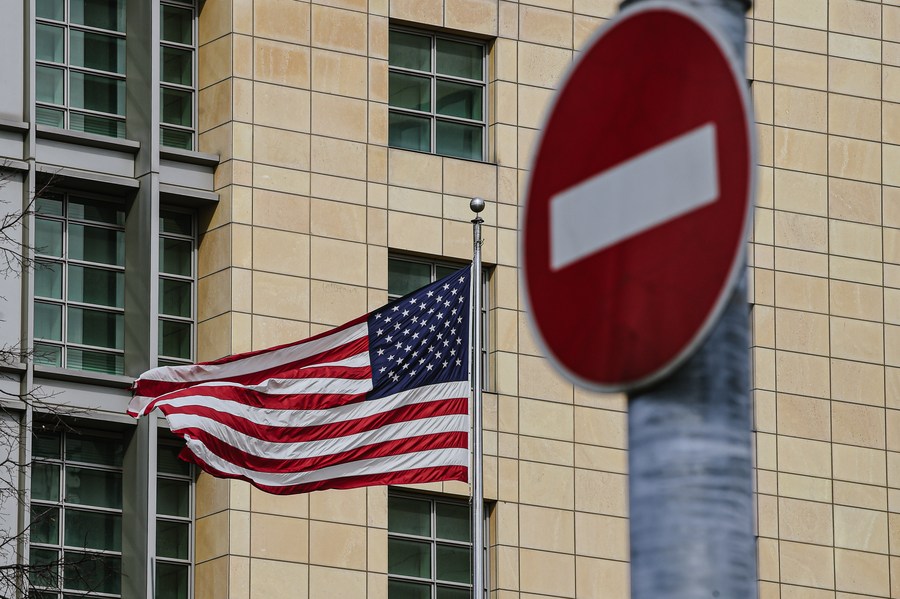
The United States warned on Wednesday that it is about to announce new sanctions against Russia as evacuations continued in the besieged southern Ukraine port city of Mariupol.
As many as 562 people, including 110 children, were evacuated from Mariupol to the Bezymennoye settlement in the Novoazovsky district, a border town on the southeastern tip of Ukraine near Russia, in the past 24 hours, the Territorial Defense Headquarters of Donetsk said in a statement on Wednesday.
Russia's Defense Ministry said that more than 68,000 people had been evacuated from Mariupol as of March 22, adding the humanitarian situation in the city was "catastrophic".
Bombardment from Russian troops in Mariupol continued on Tuesday. Local authorities said two "super powerful bombs" rocked the city during the daytime, but they did not provide a casualty report.
Almost 100,000 people still trapped in the ruined city face starvation "without food, water and medication", Ukrainian President Volodymyr Zelensky said in a video address on Tuesday.
Satellite images of Mariupol show a charred landscape, with several buildings ablaze and smoke billowing over the city.
The Pentagon said Russia is pummeling Mariupol with artillery and long-range missiles and from naval ships deployed in the nearby Sea of Azov.
Kremlin Spokesman Dmitry Peskov said the main goal of Russian forces in Mariupol is to clear the city of nationalist units. The nationalists "are simply not letting people out from the town" using civilians "like a shield", he said in an interview with CNN.
Peskov refused to rule out the use of nuclear weapons in the conflict. When asked under what conditions Russian President Vladimir Putin would use Russia's nuclear capability, Peskov replied, "If it is an existential threat for our country, then it can be".
Peskov said the "special operation" in Ukraine is going on strictly in accordance with the plans and purposes established beforehand. From the beginning, no one was expecting it to take "a couple of days", he added.
Moscow is not looking to establish a structure that would reshape or reorganize local authorities in Ukraine's territories, Peskov said.
US National Security Advisor Jake Sullivan warned on Tuesday that the US, along with the European Union, will impose more sanctions on Russia and toughen existing ones during President Joe Biden's visit to Brussels, Belgium, on Thursday.
Biden will participate in emergency summits of NATO, the European Union and the G7 that will focus on displays of cooperation in punishing Russia and providing support to Ukraine.
Meanwhile, Russian Ambassador to the US Anatoly Antonov has accused Western countries of sending weapons and mercenaries to Ukraine, which are extremely dangerous policies that pose a threat to European and global security.
United Nations Secretary-General Antonio Guterres called for more talks, saying elements of diplomatic progress can be seen on several key issues. "There is enough on the table to cease hostilities-now …and seriously negotiate-now," Guterres said at a news conference in New York on Tuesday.
Agencies contributed to the story.
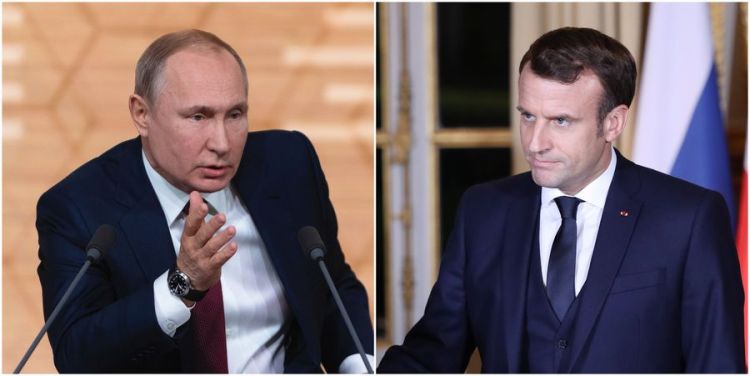
MOSCOW -- Russian President Vladimir Putin on Tuesday held a phone conversation with his French counterpart, Emmanuel Macron, during which they discussed the situation in Ukraine.
"A thorough exchange of views on the situation in Ukraine, including on the ongoing negotiations between Russian and Ukrainian representatives, continued," the Kremlin said in a statement.
The phone conversation was held at the initiative of the French side, it added.
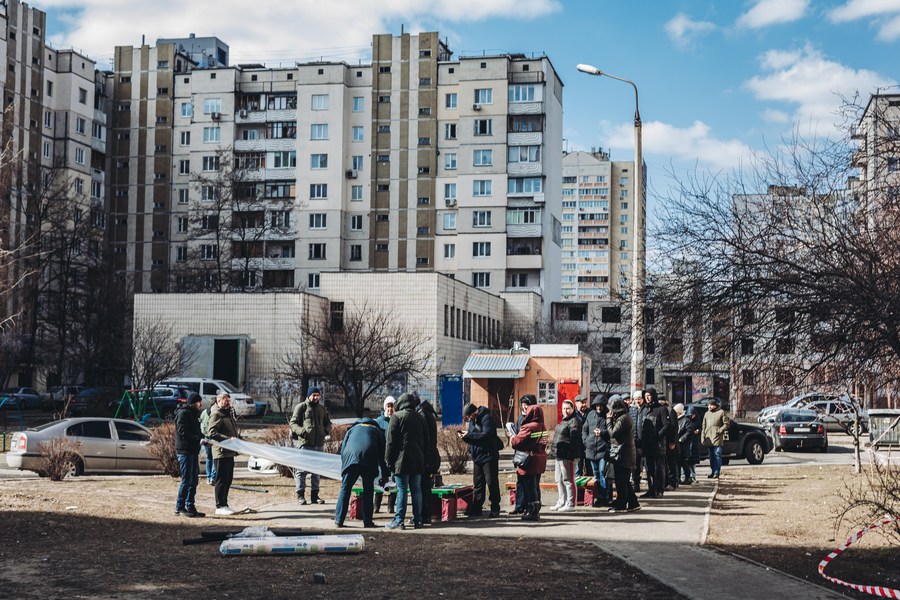
LONDON - "The West, and especially America, is principally responsible" for the Ukraine crisis, John J. Mearsheimer, a US political scientist, wrote in a recent opinion piece published in The Economist.
American and European policymakers provoked the Ukraine crisis by trying to integrate Ukraine into the West and asserting that Russian President Vladimir Putin bears full responsibility for the crisis, said Mearsheimer, a political science professor at the University of Chicago, "But that story is wrong."
In his view, the Ukraine crisis "is the most dangerous international conflict since the 1962 Cuban missile crisis." The West is now increasing aid to Ukraine while imposing economic sanctions on Russia, a step that Putin sees as "akin to a declaration of war."
Understanding the root causes is essential to finding a way to bring the crisis to an end. The trouble over Ukraine started at NATO's Bucharest summit in 2008 when George W. Bush's administration pushed the alliance to announce that Ukraine and Georgia "will become members," said the article.
In late 2021, the West ignored Russia's security concerns, with intentions of including Ukraine into NATO, which led directly to the current war, Mearsheimer wrote.
Furthermore, Russian policymakers have said "hardly anything about conquering new territory to recreate the Soviet Union or build a greater Russia," said the expert, adding that Russian leaders have repeatedly said that they view Ukraine joining NATO as "an existential threat that must be prevented."
"As Mr. Lavrov noted in January, 'the key to everything is the guarantee that NATO will not expand eastward,'" Mearsheimer said.
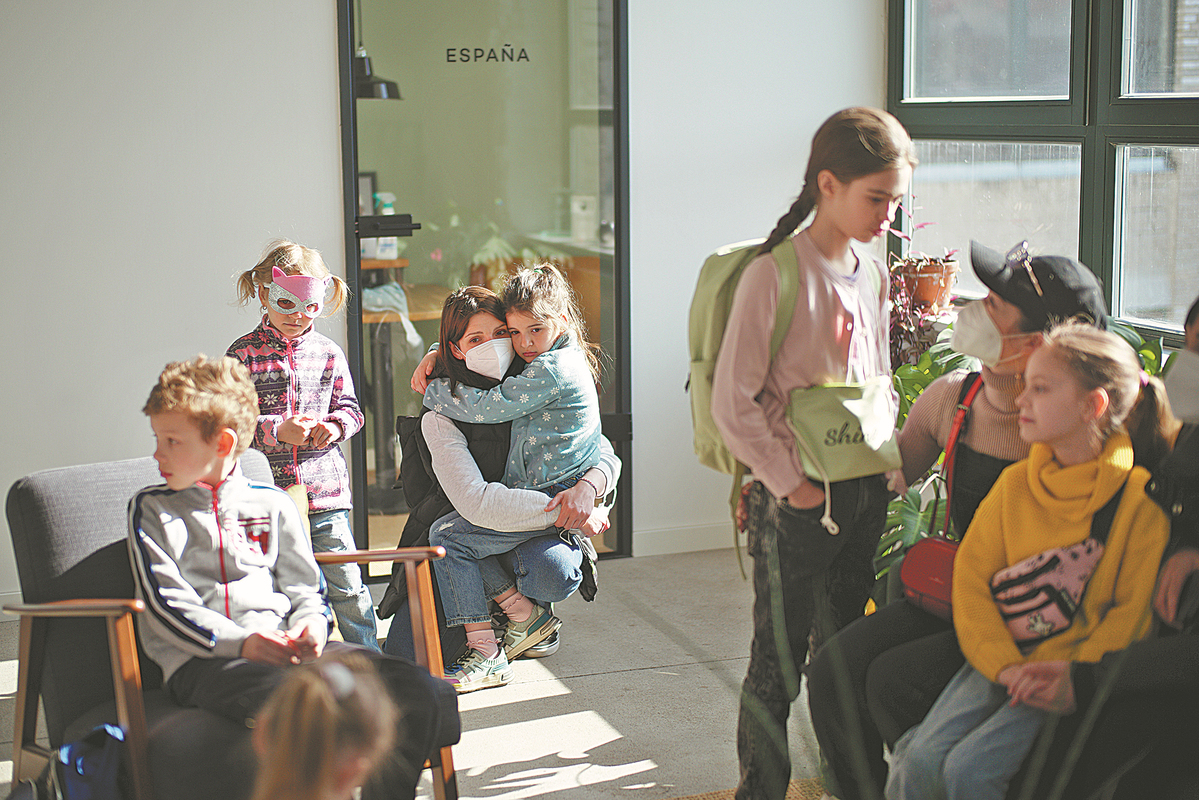
Ukrainian children today seem overwhelmed by fear, tears and sorrow, said a spokesman for the United Nations Children's Fund.
"I've seen so many thousands of these children go … husbands and wives farewelling each other, the fathers explaining to the little 7-year-old daughters or 10-year-old sons why they have to leave or why they're being separated," UNICEF spokesman James Elder told China Daily in an interview on Tuesday.
About 1.7 million Ukrainian children have fled their country so far, Elder said.
"We can see a refugee crisis, with Ukraine refugees in the fastest outflow, in terms of speed and scale, unprecedented since World War II and showing no sign of slowing down," said Elder from inside Ukraine.
"This already comes after the trauma of those children being in bunkers and under bombardment, so it's an incredibly dangerous, difficult and sad time for children across the country and for those many, many who have had to flee."
In cities like Mariupol, there is no water supply, no power and heating. "So children's destiny (is being) decided as we speak," Elder said.
"It's a very dark time for those who are trapped, and those in bunkers."
Moreover, scores have been killed and many more injured.
He described the "absolutely harrowing" situation for children in Ukraine, and only an end to the conflict can serve them well.
Risk of separation
Like all children driven from their homes amid war and conflict, Ukrainian children arriving in neighboring countries are at real risk of family separation, violence and trafficking.
"Now, the safest and fastest way out of this catastrophe-indeed the only way out of this catastrophe-is for this war to end, and end now. But until then, attacks in civilian areas and on civilian infrastructure must stop," Elder said.
"They must stop because they're claiming lives. They must stop because they're forcing people to miss out on essential health services, despite catastrophic needs. They must stop for millions of children remaining in areas of conflict in Ukraine."
A UNICEF team in Ukraine has been distributing truck after truck of medical supplies such as surgical, midwifery and obstetrics kits, oxygen generators and concentrators, as well as water, sanitation and hygiene essentials.
"Everything is needed right now," Elder said.
He also said UNICEF operates in neighboring countries where families can get information about support and protection services for those who had to flee.
Yet, "we must be clear, despite all those efforts in Ukraine from volunteers, Ukraine grandmothers to governments, from Ukrainian scouts and teenagers to United Nations agencies, so long as this war continues, the situation of Ukraine's children will only get worse".
"It's truly awful. I don't want to compare crises with everyone: there's Yemen, Syria and Ethiopia,… heartbreaking," Elder said. "But this one is no less, and it's just happening so fast. I haven't met a single Ukrainian who wants to leave their country."
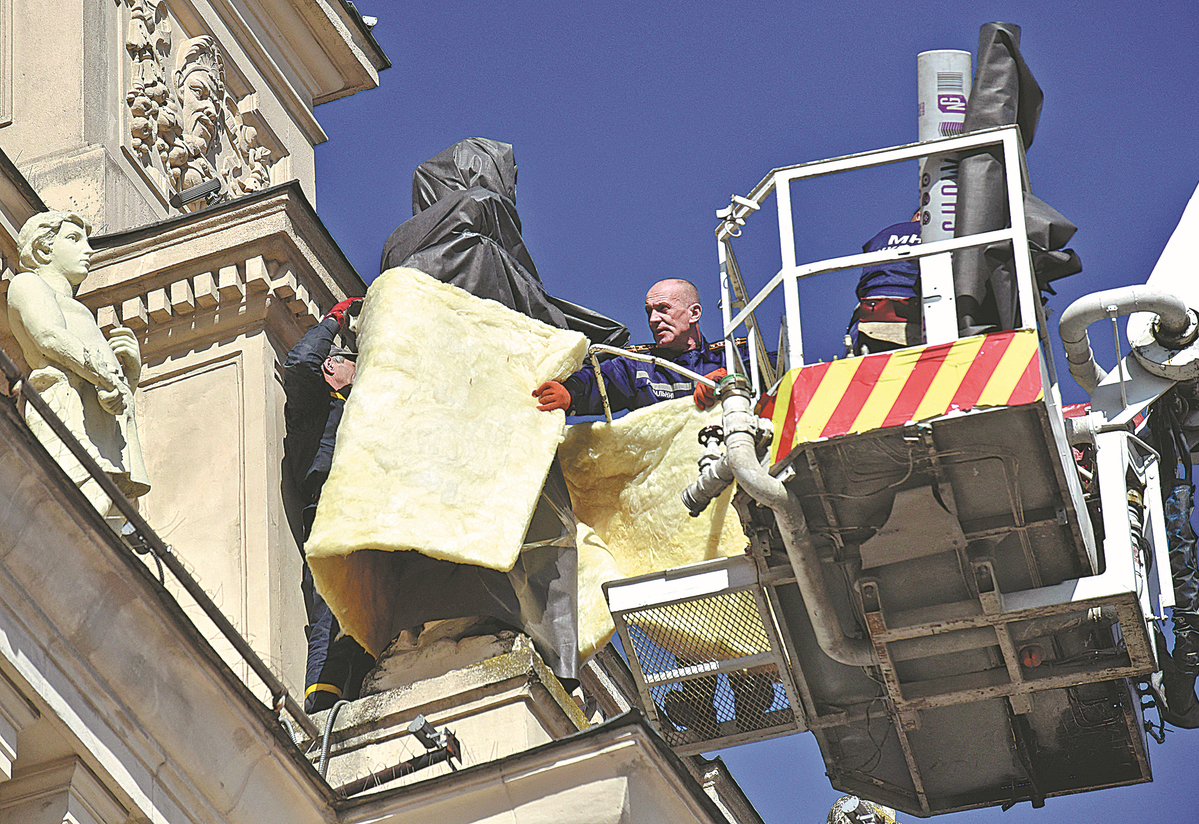
Ukrainian President Volodymyr Zelensky renewed an offer of direct peace talks with Russian President Vladimir Putin late Monday, and Moscow has announced the first prisoner exchange between the two countries.
In an interview with Ukrainian media outlet Suspilne late on Monday, Zelensky said he was ready to meet with Putin "in any format" to discuss ending the almost monthlong "special military operation" that has shattered several Ukrainian cities.
Zelensky said even the status of Crimea and Russian-backed statelets in Donbas was up for discussion. It was the first time he said the status of disputed territories could be up for discussion and a possible referendum.
"At the first meeting with the president of Russia, I am ready to raise these issues," he said.
Although Zelensky signaled that he is willing to talk about the status of the three areas, he has repeatedly insisted all three are part of Ukraine and that his country would not surrender.
Satellite images taken on Monday showed Russian artillery positions west of Russian-held Antonov Air Base, northwest of Kyiv. Those positions resemble other Russian artillery positions, with earthen berms been built around them.
Damage from Russian military strikes was also visible in images of Irpin, northwest of Kyiv. Two distinct fires could be seen in central Irpin near a city government complex and other buildings.
Russia has not responded to Zelensky's meeting offer, but announced the first prisoner exchange between the two neighboring countries, Russian state media TASS reported on Tuesday.
"The first exchange happened. We returned nine of our boys," Human Rights Commissioner in Russia Tatyana Moskalkova said in an interview with RT, Russia's English-language TV news network. She confirmed that Russian servicemen were exchanged for the mayor of the Ukrainian city Melitopol, Ivan Fedorov. The Office of the President of Ukraine also confirmed the exchange.
Russia announced that Moscow is ending peace treaty talks with Tokyo in light of new unilateral restrictions against Russia that Japan adopted in response to the Ukraine situation. Russia cited the "impossibility" of continuing discussions "with a country that has taken an openly hostile position and is striving to cause harm to the interest of our country".
Japan and its Group of Seven allies have been united in imposing tough sanctions on Russian financial institutions and leaders.
The Russian Foreign Ministry said it was ending a visa-free policy for Japanese people to visit the disputed Kuril Islands-which Tokyo calls the Northern Territories-and was pulling out of talks on joint economic activity there.
Agencies contributed to this story.

The ongoing Russia-Ukraine conflict has roiled commodity markets and threatens global food security. Thanks to the impacts of the COVID-19 pandemic and other factors, food prices were already high when the Ukraine crisis erupted. And poor harvests in South America, strong global demand and supply chain issues have reduced grain and oilseed inventories, driving prices to their highest levels since 2011-13.
Vegetable oil prices have also reached record levels, reflecting the poor soybean production in South America, reduced palm oil supplies due to harvesting problems in Malaysia, and sharp increase in the use of palm and soybean oil for biodiesel production. Prices of key energy-intensive inputs such as fuels, fertilizers and pesticides, too, have reached near-record levels.
Net-food importing nations to suffer most
The conflict in Ukraine will further affect global markets, due to disruptions in global grain supplies in the short term and natural gas and fertilizers, which in turn will have negative impacts on producers as they enter a new planting season. This could increase the already-high food prices and have serious consequences for low-income, net-food importing countries, many of which are seeing an increase in malnourishment rates over the past years due to the pandemic-induced disruptions in food supply and rising prices.
Over the past 30 years, the Black Sea region has emerged as an important global channel for grain, oilseed and vegetable oil supplies. In the early 1990s, following the disintegration of the Soviet Union, the region was a net importer of grains.
Today, Russian and Ukrainian exports account for about 12 percent of the total calories traded in the world, and the two countries are among the top five global exporters of many important cereals and oilseeds, including wheat, barley, sunflower and corn. Ukraine is also the largest exporter of sunflower seed oil, accounting for about 50 percent of the global market.
Many countries are highly dependent on the import of such products from Ukraine and Russia. For example, North Africa and the Middle East import about 60 percent of their cereal needs and a large percentage, between 40 percent to 50 percent, of their wheat and barley from Ukraine and Russia. Ukraine is also an important supplier of corn to the European Union and China, and several North African countries including Egypt and Libya.
Grain, oilseed exports likely to be disrupted
Most of the wheat and barley crops are harvested in the summer and exported during the fall, and the export of much of the wheat and barley occurs by late February. But Ukraine's corn and sunflowerseed oil exports remain heavy through the spring into early summer, and most of its grain and oilseed exports flow out of Odessa and other ports on the western shore of the Black Sea. Unfortunately, Russia has blockaded de facto Ukrainian ports since mid-February.
However, disruptions are looking increasingly likely as the military conflict has intensified, forcing shipping to be suspended and threatening the upcoming wheat harvest and spring plantings in Ukraine.
Besides, the countermeasures taken by the United States, the European Union and other economies against Russia could have a huge impact on the latter's natural gas and fertilizer exports. And since Russian natural gas accounts for about 20 percent of the global trade and Russia supplies about 40 percent of the EU's current imports, Western sanctions against Moscow could disrupt energy trade and drive up natural gas prices to even higher levels.
True, European importers could switch to other suppliers such as the US, but logistical issues-the US exports liquefied natural gas-will add to the costs without providing any significant relief, at least in the short term.
Fertilizer prices, too, could surge because Russia is an important supplier of nitrogenous and potash fertilizers-it accounts for 15 percent of the global trade in nitrogenous fertilizers and 17 percent in potash fertilizers-and Belarus which accounts for an additional 16 percent of the global market share of potash exports has already been targeted by some Western sanctions for actions taken by Belarusian authorities against a commercial airline in 2021.
Rising fertilizer prices may reduce food output
The international fertilizer markets have been reeling from the impact of record high prices, so further shortages will have global implications, particularly for developing countries where rising prices could significantly reduce fertilizer use, leading to poor local harvests at a time of shrinking global stocks and record high food prices.
Since the conflict poses a serious threat to global food security, governments and international organizations have to take a range of measures to overcome that.
The situations in the international markets are very fluid, but of immediate concern is the vulnerability of net food-importing countries which are highly dependent on Ukraine for supplies, such as those in the Middle East and North Africa. So the global efforts to restore peace should also include taking measures to better safeguard global food security, which means ensuring that the sanctions against Russia do not impact third-party countries dependent on Russian exports.
And to the extent possible, food and fertilizer exports should be allowed to continue unimpeded, failing which mitigation packages should be provided for the affected third-party countries. Imposing sanctions on those sectors will only exacerbate the global food shortage and mainly penalize populations that are already food insecure.
Protectionist policies won't help countries
Also, given the skyrocketing agricultural prices, some countries could seek to insulate domestic producers by restricting exports. Such moves should be avoided. As we saw in 2007-08 and 2010-11, such beggar-thy-neighbor policies can have harmful effects on importing countries, particularly the most vulnerable. So the sanctions aimed at penalizing a country for breaking international law as well as the export restrictions introduced to protect domestic consumers have to be designed in such a way that they safeguard global food security and protect third-party countries from further harm.
Finally, the reliance of so many countries on Russian oil and gas will trigger important policy debates, and calls for greater energy sovereignty and diversification.
But policies that call for ramping up production of biofuels should be viewed with skepticism. Redirecting food crops (corn, wheat, oilseeds) to non-food uses around the world, from the EU to Indonesia, is already generating significant tensions in food and fertilizer markets. A holistic approach to food and energy security is critical to ensuring that food and nutrition remain a priority for the international community.
Joseph Glauber and David Laborde are senior research fellows at the Markets, Trade, and Institutions Division of the International Food Policy Research Institute.
The views don't necessarily reflect those of China Daily
If you have a specific expertise, or would like to share your thought about our stories, then send us your writings at opinion@chinadaily.com.cn, and comment@chinadaily.com.cn.
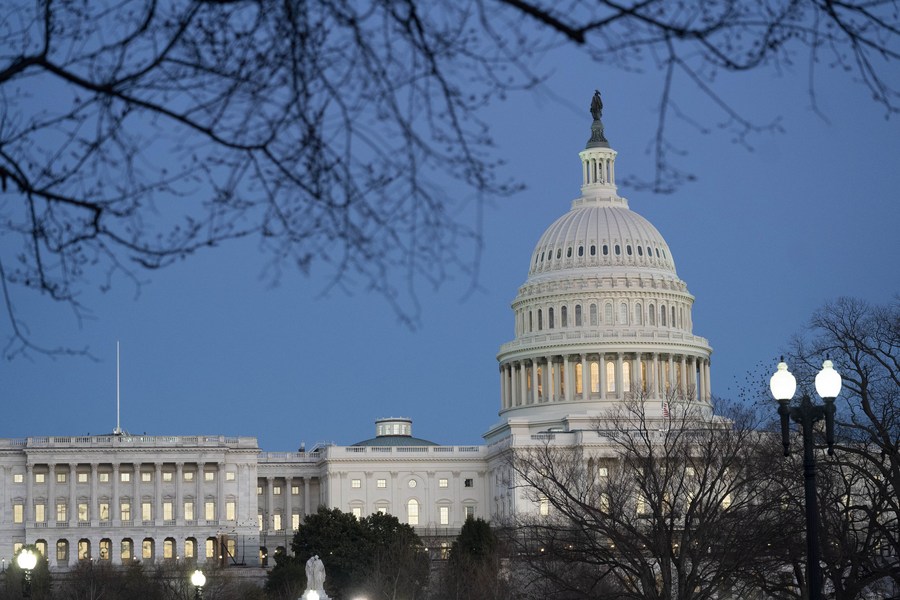
Since the conflict in Ukraine broke out, some US politicians and media have ceaselessly waged a campaign of disinformation against China. One of the most persistent being China is willing to supply Russia with weapons, according to US intelligence officials.
Chinese Ambassador to the United States Qin Gang categorically refuted this claim in an interview with CBS News on Monday, stating "The allegation that China provides military assistance to Russia is false information, and we oppose it."
But such a claim is nothing new for the US, which 19 years ago invaded Iraq based on a test tube of washing powder. Contrary to its later claim that it was an "intelligence failure" that led to the US invasion of Iraq in March 2003, it was instead an extremely successful disinformation campaign orchestrated by the CIA that paved the way for the US to use military force to secure Washington's desired regime change in that country.
Despite the allegations being made by the US, China is not supplying weapons and ammunition to either side in the Ukraine conflict. What it has delivered to Ukraine is three batches of emergency humanitarian assistance. This includes food, sleeping bags, infant formula, cotton quilts, and waterproof mats. On Monday, the Chinese Foreign Ministry announced that the country will provide another 10 million yuan ($1.57 million) worth of humanitarian assistance to Ukraine.
In fact, it is the US and other NATO members which are weaponizing the crisis by supplying Ukraine with billions of dollars of weapons. On Friday, for instance, the Joe Biden administration announced an additional $800 million weapons package to assist Ukraine's fight against Russia.
By making Ukraine their proxy in their confrontation with Russia, the US and its allies are escalating the conflict in Ukraine and worsening the humanitarian disaster that is unfolding.
NATO, as a military bloc, should have disbanded after the Cold War. Instead, it continued to expand eastward and gradually eroded Russia's security environment and tilted the strategic equilibrium in Eastern Europe. Since 2014, the US has provided Ukraine with billions of dollars of military aid, and NATO has staged multiple large-scale war games there.
The CIA's "judgments" that led to the invasion of Iraq were not the result of a failure within the US intelligence community to correctly analyze and assess the evidence, as was later claimed, but rather a systematic and successful effort of disinformation in order to generate support for military action. The policy was not based on the facts, rather a story was fabricated to justify the policy.
This is a tried-and-tested tactic that the US never tires of. But it is the Ukrainian people who are today paying the price for the tall tales spun by Washington.
Instead of spreading disinformation, the US should do some soul-searching and join peace-loving people around the world to address the root cause of the Ukraine crisis.
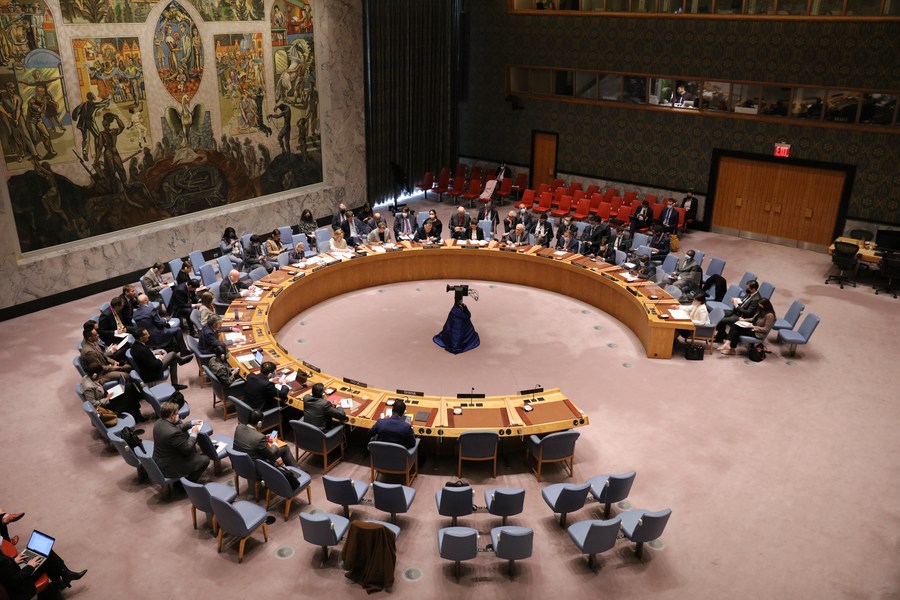
UNITED NATIONS - The UN General Assembly (UNGA) will vote Wednesday on a draft resolution on Ukraine, the second such resolution since the start of Russia's special military operation in Ukraine, a spokesperson said Monday.
The 11th Emergency Special Session of the General Assembly will be held after a letter requesting the resumption was received by UNGA President Abdulla Shahid, his spokesperson Paulina Kubiak told reporters in an email.
"A draft resolution sponsored by Ukraine and other member states has been submitted and is being processed," she said.
According to diplomatic sources, the new UNGA draft resolution focuses on the humanitarian situation, calling for the protection of civilians, medical personnel, aid workers, journalists, hospitals, and other civilian infrastructure.
